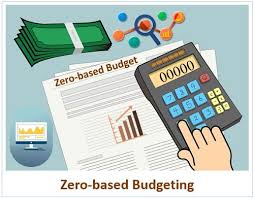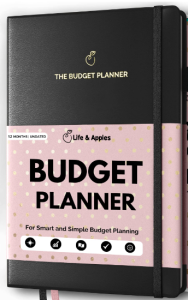Money isn’t just about numbers – it’s deeply intertwined with our emotions, habits, and psychological patterns. When we talk about zero-based budgeting, we’re not just discussing a financial tool; we’re exploring a transformative approach that fundamentally changes how we think about and interact with money.
Zero-based budgeting is more than allocating every dollar a purpose. It’s a psychological reset button that challenges our established money habits and forces us to question every financial decision we make.
Unlike traditional budgeting methods that often autopilot our spending, zero-based budgeting engages our minds in a completely different way.
In this comprehensive guide, we’ll explore how zero-based budgeting transforms your money mindset, breaks destructive financial patterns, and builds healthier psychological relationships with money.
You’ll discover why this method is particularly effective at creating lasting behavioral change and how you can leverage psychological principles to make your budgeting more successful.
Skale Money Key Takeaways
Core Benefits:
- Rewires your brain’s approach to spending decisions
- Eliminates autopilot financial behaviors
- Creates conscious money relationships
- Reduces financial anxiety through control and clarity
Implementation Insights:
- Takes 60-90 days to form new mental habits
- Requires initial mindset adjustment period
- Builds stronger financial decision-making skills
- Develops lasting money management behaviors
Table of Contents
What Makes Zero-Based Budgeting Psychologically Different
The fundamental difference between traditional budgeting and zero-based budgeting lies in the mental approach.
While traditional budgeting often feels like putting restraints on your spending, zero-based budgeting empowers you to make intentional choices about every dollar.
Key Psychological Differences:
- Active Engagement: Every spending decision requires conscious thought
- Ownership Mentality: You control your money, rather than it controlling you
- Fresh Start Effect: Monthly reset eliminates past spending guilt
- Decision Framework: Clear structure reduces financial overwhelm
Comparative Mindset Analysis:
| Aspect | Traditional Budgeting | Zero-Based Budgeting |
| Decision Making | Reactive | Proactive |
| Money View | Restrictive | Purposeful |
| Control Feel | External | Internal |
| Focus | Past Patterns | Future Goals |
The Psychology of “Starting from Zero”
Starting from zero each month isn’t just an accounting practice – it’s a powerful psychological tool that reshapes how your brain approaches financial decisions.
This clean slate approach activates what psychologists call the “fresh start effect,” where people are more motivated to pursue their goals after temporal landmarks or new beginnings.
Mental Benefits of Zero-Based Budgeting:
- Eliminates Decision Fatigue: By pre-deciding where money goes, you reduce daily mental strain
- Creates Mental Separation: Each month stands alone, preventing past mistakes from affecting future choices
- Enhances Cognitive Processing: Active allocation improves financial awareness
- Builds Confidence: Regular success in allocation builds financial self-efficacy
Research shows that this fresh-start mindset can increase motivation by up to 83% when coupled with clear goal-setting and regular review processes.
Breaking the Scarcity vs. Abundance Mindset
Zero-based budgeting challenges the traditional scarcity mindset that many people develop around money. Instead of viewing budgeting as restrictive, it reframes financial planning as an opportunity to align spending with values and goals.
Impact on Money Beliefs:
- Transforms “I can’t afford it” to “Is this the best use of my money?”
- Shifts focus from limitations to possibilities
- Encourages value-based spending decisions
- Promotes long-term thinking over immediate gratification
Mindset Comparison Table:
| Aspect | Scarcity Mindset | Abundance Mindset |
| Focus | What you lack | What you can create |
| Decisions | Fear-based | Opportunity-based |
| Timeline | Short-term survival | Long-term growth |
| Attitude | Reactive | Strategic |
Cognitive Biases and How Zero-Based Budgeting Addresses Them
Our financial decisions are often influenced by cognitive biases – systematic errors in thinking that can lead to irrational choices. Zero-based budgeting helps identify and overcome these biases through structured decision-making processes.
Common Financial Biases:
- Status Quo Bias: Tendency to stick with current spending patterns
- Sunk Cost Fallacy: Continuing spending based on past investments
- Present Bias: Prioritizing immediate gratification over long-term benefits
- Mental Accounting: Treating money differently based on its source
Practical Examples:
- Instead of automatically renewing subscriptions (status quo bias), zero-based budgeting prompts monthly evaluation
- Rather than continuing an expensive hobby because you’ve already invested (sunk cost), you assess its current value
- By pre-allocating funds, you overcome the urge for impulse purchases (present bias)
- Through unified planning, you treat all money equally regardless of source (mental accounting)
The Role of Emotional Intelligence in Zero-Based Budgeting
Emotional intelligence plays a crucial role in successful zero-based budgeting. Understanding and managing your emotional responses to money directly impacts your ability to make sound financial decisions.
Key Emotional Components:
- Self-Awareness: Recognizing emotional triggers in spending
- Impulse Control: Managing emotional spending urges
- Delayed Gratification: Building patience in financial decisions
- Emotional Resilience: Handling financial setbacks constructively
Tips for Developing Financial EQ:
- Practice mindful spending by pausing before purchases
- Keep a money journal to track emotional spending triggers
- Celebrate small wins in sticking to your budget
- Develop stress management techniques for financial pressure
Building New Neural Pathways Through Zero-Based Budgeting
The process of zero-based budgeting literally rewires your brain through neuroplasticity – the brain’s ability to form new neural connections.
Regular practice of intentional financial decision-making strengthens these pathways, making good financial habits more automatic over time.
Habit Formation Elements:
- Regular Review Cycles: Monthly planning sessions strengthen neural connections
- Intentional Decisions: Active choices build new mental patterns
- Positive Reinforcement: Success experiences reinforce good habits
- Progress Tracking: Visible improvements motivate continued effort
Timeline of Habit Formation:
| Week | Focus Area | Expected Progress |
| 1-2 | Initial Adjustment | Understanding the system |
| 3-4 | Pattern Recognition | Identifying spending triggers |
| 5-8 | Habit Building | Developing automatic behaviors |
| 9-12 | Reinforcement | Strengthening new patterns |
The Social Psychology of Zero-Based Budgeting
The way we handle money is deeply influenced by our social connections and cultural background. Understanding these influences is crucial when implementing zero-based budgeting, as it helps navigate social pressures and family dynamics more effectively.
Key Social Influences:
- Family Money Scripts: Inherited beliefs about money management
- Peer Pressure: Social spending expectations
- Cultural Norms: Community attitudes toward money
- Relationship Dynamics: Partner and family financial interactions
Managing Social Factors:
- Communicate your financial goals with family members
- Develop strategies for social situations that trigger spending
- Find a support system of like-minded individuals
- Create boundaries for financial discussions and decisions
Implementing Psychological Strategies for Success
Successful implementation of zero-based budgeting requires a combination of psychological tools and practical strategies. This systematic approach ensures both mental preparation and practical success.
Action Steps for Implementation:
- Mindset Preparation:
- Set clear, achievable financial goals
- Create positive money affirmations
- Develop a growth mindset about financial learning
- Establish realistic expectations
Weekly Implementation Checklist:
- Review spending triggers and patterns
- Celebrate progress and wins
- Adjust allocations based on learnings
- Schedule regular budget check-ins
- Practice mindful spending exercises
Measuring Your Psychological Progress
Tracking your psychological growth is as important as monitoring your financial progress when using zero-based budgeting. Regular self-assessment helps identify areas of improvement and celebrates mental shifts.
Progress Indicators:
- Reduced financial anxiety levels
- Increased confidence in money decisions
- Better sleep and reduced money stress
- Improved relationship with spending
Self-Assessment Questions:
- How often do you feel anxious about money decisions?
- Do you feel in control of your spending?
- How confident are you in your financial choices?
- Has your relationship with money improved?
Conclusion
Zero-based budgeting represents more than just a financial methodology – it’s a powerful tool for psychological transformation in your relationship with money. By starting from zero each month, you’re not just organizing your finances; you’re rewiring your brain for better money management and creating lasting positive change.
The psychological benefits extend far beyond basic budgeting:
- Enhanced financial confidence
- Reduced money-related stress
- Improved decision-making abilities
- Stronger financial relationships
As you continue your zero-based budgeting journey, remember that changing your money mindset is a process. Each month brings new opportunities to strengthen your financial psychology and build better money habits.
FAQ Section
How long does it take to adjust to zero-based budgeting mentally?
Most people begin to feel comfortable with zero-based budgeting after 2-3 months of consistent practice. However, forming solid mental habits typically takes 60-90 days of regular engagement.
What are the most common psychological barriers to zero-based budgeting?
Common barriers include fear of restriction, overwhelm with detailed tracking, resistance to change, and difficulty breaking established spending habits. These can be overcome with patience and consistent practice.
Can zero-based budgeting help with financial anxiety?
Yes, zero-based budgeting often reduces financial anxiety by providing clear structure, control, and predictability in money management. Many users report feeling more peaceful about their finances within the first few months.
How do I maintain motivation with zero-based budgeting?
Set small, achievable goals, track your progress, celebrate wins, and connect with others using the same system. Visual progress tracking and regular reward systems can help maintain momentum.
What if my partner has a different money mindset?
Open communication, compromise, and gradual implementation are key. Consider starting with a portion of shared expenses and demonstrating the benefits through results rather than forcing immediate complete adoption.
How does zero-based budgeting affect spending guilt?
Zero-based budgeting often reduces spending guilt by pre-allocating funds for both necessities and enjoyment. When spending aligns with your plan, you can enjoy purchases without guilt.
Author: Cosmas Mwirigi
Cosmas Mwirigi is an established freelance writer with over five years of experience and the founder of Skalemoney.com. Cosmas Mwirigi has been published on PV-Magazine, Slidebean, Bridge Global, Casinos.com, Gambling.com, and Reverbico among many other websites.
Cosmas Mwirigi is an expert writer in iGaming, B2B, SaaS, Finance, digital marketing and Solar renewable energy. To contact him for his services, connect with him on his LinkedIn
![]()




